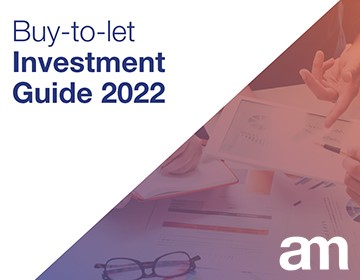Atkinson McLeod is an independent London real estate group specialising in sales, rentals, and property management. Founded in 2002, the firm has five offices across the city: Balham, Canary Wharf, Wapping, Hackney and Kennington.
We offer free instant online valuations and free market appraisals: just book one here!
Atkinson McLeod is also member of all the main bodies governing residential estate agency: the NAEA (National Association of Estate Agents), ARLA (the Association of Residential Lettings Agents) and the OEA (Ombudsman for Estate Agents).
Contact us today to find out more at customerservice@atkinsonmcleod.com or call us at 0333 090 1661
https://www.atkinsonmcleod.com/

In recent years, letting property has become more challenging due to a range of tax and regulation changes and since March 2020, the rental sector has also had to contend with the impact of the Covid-19 pandemic.
The appeal of London as a global destination remains firmly intact. Landlords letting property here benefit from annual property price rises and consistently high tenant demand. Meanwhile, due to record low interest rates, it’s a great time to expand a portfolio.
We hope the following guide provides you with useful information on property and rental prices, London’s enduring appeal, the costs landlords need to consider, the best types of property to invest in and much more.
What are the pros and cons of property investment?
The pros
Security compared to other investments
The biggest reason for property’s increasing popularity as an asset class is the fact that it’s safer and more secure than other investments, such as gold and stocks and shares, or even more modern avenues such as cryptocurrency, which tend to be much more volatile and prone to fluctuation. They are also much more vulnerable to external shocks and forces, as seen by the unpredictability of the FTSE 100 or the Dow Jones during times of crisis.
Once upon a time, pensions were the best way to accrue money over time for retirement. But for many, government and workplace pensions aren’t good enough to live off in retirement. This has seen many turn to property instead
Regular rental income and property price rises
The solid fundamentals of the market – rising house prices and consistent tenant demand – have helped to make it attractive to many. The rising number of people renting for the long-term, especially in cities like London, has meant property has been a great place for people to put their money.
If you decide to let your home, you can benefit from regular rental income over time and hopefully generate a good return on investment each year. Equally, there is capital growth to consider, which in a city like London has become pretty inevitable in recent years. If you ever come to sell your home in the future, you can feel confident that you will get quite a lot more than you paid for it in the first place.
In addition, having a stable asset is useful if you need a property to live in further down the line. Property is a tangible investment in a way that stocks, shares and gold – intangible and volatile – are not.
The cons
Risk of investment
No investment comes without risk, and in the case of letting property you could face void periods (times where your home is unoccupied and generating no rental income, but where you still have all the costs to cover).
Additional costs to consider
There is also potentially costly maintenance to factor in. For example, if the oven or boiler breaks down, it’s your responsibility as the landlord to step in to fix or replace these items. You might also have issues with roofs, damp, drains or something like Japanese knotweed.
It’s also important to bear in mind, when investing in property, acquisition costs such as stamp duty. In recent years, the government has been strongly criticised for what has been seen as deliberate attacks on the buy-to-let sector in terms of tax and regulation. As well as the aforementioned stamp duty surcharge, there have been changes to mortgage interest tax relief, energy efficiency, electrical installation and wear and tear.
Low interest rates and rising prices - why now is a good time to invest
Despite the many challenges posed by Covid-19, now remains a good time to invest as conditions are still favourable for buy-to-let borrowers.
We are living through an era of record low interest rates which are unlikely to be changed until the economy is in a healthier state.
Most buy-to-let landlords have an interest-only mortgage, which means the Bank of England base rate takes on even more importance.
The current base rate is a mere 0.1% to protect the economy against the coronavirus crisis. Interest rates have been held below 1% since February 2009. They were steadily slashed throughout the financial crisis, down from 5% in March 2008 to 0.5% by March 2009.
Interest rates stayed the same from March 2009 until August 2016, when they fell again to 0.25% in the aftermath of the Brexit referendum. As the economy recovered from that shock, rates slowly crept up over the next few years, reaching 0.75% in August 2018 (…)